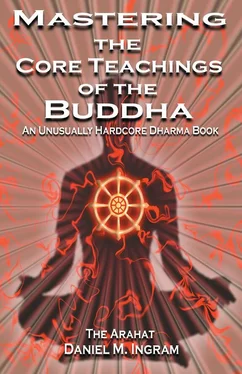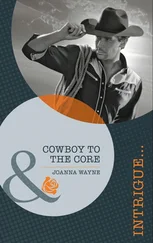Daniel Ingram - Mastering the Core Teachings of Buddha - An Unusually Hardcore Dharma Book
Здесь есть возможность читать онлайн «Daniel Ingram - Mastering the Core Teachings of Buddha - An Unusually Hardcore Dharma Book» весь текст электронной книги совершенно бесплатно (целиком полную версию без сокращений). В некоторых случаях можно слушать аудио, скачать через торрент в формате fb2 и присутствует краткое содержание. Год выпуска: 2009, ISBN: 2009, Издательство: Aeon Books, Жанр: Старинная литература, на русском языке. Описание произведения, (предисловие) а так же отзывы посетителей доступны на портале библиотеки ЛибКат.
- Название:Mastering the Core Teachings of Buddha - An Unusually Hardcore Dharma Book
- Автор:
- Издательство:Aeon Books
- Жанр:
- Год:2009
- ISBN:9781904658405
- Рейтинг книги:5 / 5. Голосов: 1
-
Избранное:Добавить в избранное
- Отзывы:
-
Ваша оценка:
- 100
- 1
- 2
- 3
- 4
- 5
Mastering the Core Teachings of Buddha - An Unusually Hardcore Dharma Book: краткое содержание, описание и аннотация
Предлагаем к чтению аннотацию, описание, краткое содержание или предисловие (зависит от того, что написал сам автор книги «Mastering the Core Teachings of Buddha - An Unusually Hardcore Dharma Book»). Если вы не нашли необходимую информацию о книге — напишите в комментариях, мы постараемся отыскать её.
Mastering the Core Teachings of Buddha - An Unusually Hardcore Dharma Book — читать онлайн бесплатно полную книгу (весь текст) целиком
Ниже представлен текст книги, разбитый по страницам. Система сохранения места последней прочитанной страницы, позволяет с удобством читать онлайн бесплатно книгу «Mastering the Core Teachings of Buddha - An Unusually Hardcore Dharma Book», без необходимости каждый раз заново искать на чём Вы остановились. Поставьте закладку, и сможете в любой момент перейти на страницу, на которой закончили чтение.
Интервал:
Закладка:
a. what you are asking for,
b. how to phrase it or intend it, being as specific as you
possibly can,
c. why you are asking for that, particularly if there is some more fundamental desire you hope to fulfill that you
should focus on while letting the less important specifics
happen as they may,
d. exactly who or what is involved,
e. and every single possible good and bad ramification of
what you are about to do that you can possibly think of.
Really take your time with this one, visualizing the whole
thing out in time and space as far as it could possibly go.
f. Note: if the ethics of what you are going to do feel at all strange in any part of your being, particularly your heart
or gut, you probably need to go back up to the top and
rethink the whole thing while looking at the problem
from other points of view.
4. Rise from the first to the fourth jhana. Build each one up carefully and fully along the way so that you have a good
foundation from which to work. Those who can access the
formless realms (discussed shortly) might rise all the way
151
The Concentration States (Samatha Jhanas)
through them as well. Then leave the fourth (or eighth) jhana and formally intend to make whatever you want to occur
happen, which is to say let the full energy of your intention fly without hesitation or restraint. If you are going to do this, make sure you commit to it, which is why the third step is so
important.
5. Let it go and see what happens.
One last warning on the powers: doing these things in the private is one thing, doing magickal things in public that involve other people is something else entirely. If you do overt public magick or discrete public magick, you are bound to run into someone else’s paradigms, values, and sets of beliefs about how the world is and what is possible that are not in alignment with your own. The potential for bad reactions from others is very real for a large number of reasons. Consider the long, strange relationship between the Western mainstream point of view and everything from witchcraft to crime solving psychics. In short, if you do formal magick and anyone else finds out about it or thinks they were affected by it, be ready for the possibility of serious backlash and fallout.
The formless realms are the last option one can follow from the fourth jhana, and they can definitely be very useful for putting things into perspective and sorting out a few details about “awareness” (as will be mentioned below). Before I go into the formless realms, I will digress for just a moment to a brief and belated discussion of...
152
Mastering the Core Teachings of the Buddha
22.NO-SELF VS. TRUE SELF
This is one of those questions that tends to arise when Hinduism or Christianity come in contact with Buddhism. However, perhaps it should arise more when Buddhism is thinking about itself. I include this discussion here because it addresses some points that are useful for later and previous discussions. True Self and no-self are actually talking about the same thing, just from different perspectives. Each can be useful, but each is an extreme. Truly, the truth is a Middle Way between these and is indescribable, but I will try to explain it anyway in the hope that it may support actual practice. It may seem odd to put a chapter that deals with the fruits of insight practices in the middle of descriptions of the samatha jhanas, but hopefully when you read the next chapter you will understand why it falls where it does.
For all you intellectuals out there, the way in which this chapter is most likely to support practice is to be completely incomprehensible and thus useless. Ironically, I have tried to make this chapter very clear, and in doing so have crafted a mess of paradoxes. In one of his plays, Shakespeare puts philosophers on par with lawyers. In terms of insight practice, a lawyer who is terrible at insight practices but tries to do them anyway is vastly superior to a world-class philosopher who is merely an intellectual master of this theory but practices not at all.
Remember that the spiritual life is something you do and hopefully understand but not some doctrine to believe. Those of you who are interested in the formal Buddhist dogmatic anti-dogma should check out the particularly profound suttas, #1, The Root of All Things, in The Middle Length Discourses of the Buddha, as well as sutta #1, The Supreme Net (What the Teaching is Not), in The Long Discourses of the Buddha.
Again, realize that all of this language is basically useless in the end and prone to not making much sense. Only examination of our reality will help us to actually directly understand this, but it will not be in a way accessible to the rational mind. Nothing in the content of our thoughts can really explain the experience of the understanding I am about to point to, though there is something in the direct experience of those thoughts that might reveal it. Everything that I am about to try to explain
No-self vs. True Self
here can become a great entangling net of useless views without direct insight.
Many of the juvenile and tedious disputes between the various insight traditions result from fixation on these concepts and inappropriate adherence to only one side of these apparent paradoxes.
Not surprisingly, these disputes between insight traditions generally arise from those with little or no insight. One clear mark of the development of true insight is that these paradoxes lose their power to confuse and obscure. They become tools for balanced inquiry and instruction, beautiful poetry, intimations of the heart of the spiritual life and of one’s own direct and non-conceptual experience of it.
No-self teachings directly counter the sense that there is a separate watcher, and that this watcher is an “I” that is in control, observing reality or subject to the tribulations of the world. Truly, this is a useful illusion to counter. However, if misunderstood, this teaching can produce a shadow side that reeks of nihilism, disengagement with life and denial. People can get all fixated on eliminating a “self,” when the emphasis is supposed to be on the words “separate” and “permanent,”
as well as on the illusion that is being creating. A better way to say this would be, “stopping the process of mentally creating the illusion of a separate self from sensations that are inherently non-dual, utterly transient and thus empty of any separate, permanent self.”
Even if you get extremely enlightened, you will still be here from a conventional point of view, but you will also be just an interdependent and intimate part of this utterly transient universe, just as you actually always have been. The huge and yet subtle difference is that this will be known directly and clearly. The language “eliminating your ego” is similarly misunderstood most of the time.
You see, there are physical phenomena and mental phenomena, as well as the “consciousness” or mental echo of these, which is also in the category of mental phenomena. These are just phenomena, and all phenomena are not a permanent, separate self, as they all change and are all intimately interdependent. They are simply “aware,” i.e. manifest, where they are without any observer of them at all. The boundaries that seem to differentiate self from not-self are arbitrary and conceptual, i.e.
154
No-self vs. True Self
not the true nature of things. Said another way, reality is intimately interdependent and non-dual, like a great ocean.
There is also “awareness”, but awareness is not a thing or localized in a particular place, so to even say “there is also awareness” is already a tremendous problem, as it implies separateness and existence where none can be found. To be really philosophically correct about it, borrowing heavily from Nagarjuna, awareness cannot be said to fit any of the following descriptions: that it exists, that it does not exist, that it both exists and does not exist, that it neither exists nor doesn’t exist. Just so, in truth, it cannot be said that: we are awareness, that we are not awareness, that we are both awareness and not awareness, or even that we are neither awareness nor not awareness. We could go through the same pattern with whether or not phenomena are intrinsically luminous.
Читать дальшеИнтервал:
Закладка:
Похожие книги на «Mastering the Core Teachings of Buddha - An Unusually Hardcore Dharma Book»
Представляем Вашему вниманию похожие книги на «Mastering the Core Teachings of Buddha - An Unusually Hardcore Dharma Book» списком для выбора. Мы отобрали схожую по названию и смыслу литературу в надежде предоставить читателям больше вариантов отыскать новые, интересные, ещё непрочитанные произведения.
Обсуждение, отзывы о книге «Mastering the Core Teachings of Buddha - An Unusually Hardcore Dharma Book» и просто собственные мнения читателей. Оставьте ваши комментарии, напишите, что Вы думаете о произведении, его смысле или главных героях. Укажите что конкретно понравилось, а что нет, и почему Вы так считаете.












